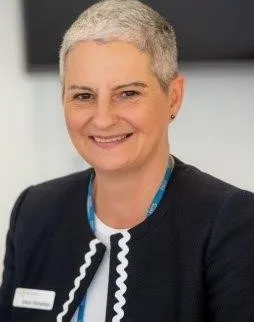Project overview
There is not much information about people with dementia having cancer treatment. This study aims to understand how high quality care can be provided for people with dementia undergoing outpatient cancer treatment (radiotherapy, chemotherapy or other anti-cancer treatment). The study uses a research method called ethnography, which is where a researcher conducts ‘fieldwork’ to study a group of people to better understand that group. It will look at:
The environment (surroundings and conditions) of the outpatient clinics and treatment areas;
How people in the outpatient clinics and treatment areas behave and interact with each other;
How treatment and support is organized in the outpatient clinic and treatment areas.
Fieldwork will take place in the outpatient departments of University Hospital Southampton NHS Foundation Trust. It will include observations, interviews and review of patient notes. The people who will be invited to take part in the study are:
People with dementia having cancer treatment;
Friends or family supporting people with dementia having cancer treatment;
Staff involved in the care of people with dementia having cancer treatment (doctors, nurses, support workers, administrative staff, and others).
All those who take part in the study will be asked to give consent. The study includes:
Observation. this will be carried out in cancer outpatient clinics and treatment areas. This will look at the environment (surroundings and conditions); the everyday interactions that happen between patients, carers and staff; and way in which care and support take place. Observation will take place in the general clinic areas as well as during doctor appointments and when treatment is being given. The researcher will take detailed notes.
Interviews. these will be carried out with patients, carers and staff. These will focus on how people in the study speak and act to understand more about how they think and feel. Interviews will be digitally recorded, and a written transcript will be made.
Patient notes. Researchers will look at patient notes to add to the information from observation and interviews. They will look at the notes to find out about diagnosis, treatment and support offered to patients.
These 3 methods of data collection will help the researchers put together a detailed picture of the outpatient setting including how people act (behaviour), the surroundings and conditions (environment), and the way treatment and support is organised (processes). This will reveal ways in which healthcare organisations might best provide cancer treatment for people with dementia that is person-centred (focused on the needs of the person themselves) and of a high quality.
This project was led by Dr Naomi Farrington as part of her HEE-NIHR ICA Clinical Lectureship award.
The environment (surroundings and conditions) of the outpatient clinics and treatment areas;
How people in the outpatient clinics and treatment areas behave and interact with each other;
How treatment and support is organized in the outpatient clinic and treatment areas.
Fieldwork will take place in the outpatient departments of University Hospital Southampton NHS Foundation Trust. It will include observations, interviews and review of patient notes. The people who will be invited to take part in the study are:
People with dementia having cancer treatment;
Friends or family supporting people with dementia having cancer treatment;
Staff involved in the care of people with dementia having cancer treatment (doctors, nurses, support workers, administrative staff, and others).
All those who take part in the study will be asked to give consent. The study includes:
Observation. this will be carried out in cancer outpatient clinics and treatment areas. This will look at the environment (surroundings and conditions); the everyday interactions that happen between patients, carers and staff; and way in which care and support take place. Observation will take place in the general clinic areas as well as during doctor appointments and when treatment is being given. The researcher will take detailed notes.
Interviews. these will be carried out with patients, carers and staff. These will focus on how people in the study speak and act to understand more about how they think and feel. Interviews will be digitally recorded, and a written transcript will be made.
Patient notes. Researchers will look at patient notes to add to the information from observation and interviews. They will look at the notes to find out about diagnosis, treatment and support offered to patients.
These 3 methods of data collection will help the researchers put together a detailed picture of the outpatient setting including how people act (behaviour), the surroundings and conditions (environment), and the way treatment and support is organised (processes). This will reveal ways in which healthcare organisations might best provide cancer treatment for people with dementia that is person-centred (focused on the needs of the person themselves) and of a high quality.
This project was led by Dr Naomi Farrington as part of her HEE-NIHR ICA Clinical Lectureship award.
Staff
Other researchers
Collaborating research institutes, centres and groups
Research outputs
Naomi Farrington, Andy Richardson & Jacqueline Bridges,
2022, Health Expectations, 26(1), 98-107
DOI: 10.1111/hex.13523
Type: article
Naomi Farrington, Alison Richardson & Jacqueline Bridges,
2019, Journal of Geriatric Oncology, 11(5), 769-783
Type: article

